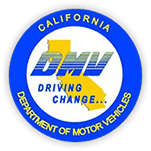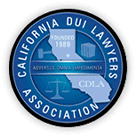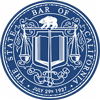









If you have been arrested for Vehicle Code Section 23152 (a) or Vehicle Code Section 23152(b), commonly referred to as a DUI, you most likely have questions regarding the court process. Fortunately, our dedicated attorneys could guide you through the court process for Orange County DUI cases.
When you appear in court for the first time during the DUI case process, the charges against you will be read and you will answer to them not guilty, guilty, or no-contest. The prosecuting attorney or judge will discuss whether bail should be required and how much. Both the District Attorney and your Riverside DUI attorney may file other motions at this time. In most misdemeanor DUI cases, you do not have to attend the arraignment, as your attorney can appear on your behalf. Your attorney can enter a plea of not guilty on your behalf or continue the arraignment depending upon the particular circumstances involved in the case.
A pretrial hearing may also be set during the arraignment process in a misdemeanor DUI case. The attorneys will discuss the case during the pretrial hearing, and may attempt to reach a settlement at that time. Further pretrial dates may be necessary. In most misdemeanor DUI cases, your attorney can appear on your behalf and you will not be burdened with the time and possible embarrassment of having to appear in court. If the case is not settled or dismissed, a date is set to begin the trial.
A preliminary hearing may be set during the arraignment for a felony case. Most drunk-driving offenses are misdemeanors, though if it is your fourth or subsequent DUI it may be charged as a felony. In addition, if you are charged with a DUI with Injury under VC 23153, or if you had children in the vehicle, referred to as Child Endangerment, you may face prosecution for a felony. At this hearing, the attorneys present basic evidence, and the judge decides whether to allow the case to proceed. The defense has the opportunity to cross-examine witnesses, which can help determine whether the prosecution has a case against you.
If the judge decides there is enough evidence against you to proceed with the felony charges, you will be “held to answer” and a second arraignment will be set in the trial court about two weeks later where you will again enter your plea.
There are specific time limits in which a case must be brought to trial. In misdemeanor cases, you have a right to go to trial within 30 days of your arraignment if you were in custody at that time, or 45 days if you were not in custody at your arraignment. In felony cases, you have the right to go to trial within 60 days of the second arraignment. Often the case requires additional investigation and research before going to trial. The attorneys may ask for a “continuance” and your case may not go to trial for several months.
The trial itself can take anywhere from days to weeks to conclude, depending on the complexity of the case, the number of witnesses, and DUI experts the local attorneys call to the stand during the court process.
Once the jury has entered a verdict against you, the sentencing phase of the trial begins. Your attorney may present evidence in your favor and argue for minimum or alternative sentencing. You could go to jail for up to one year for a misdemeanor charge, or more than one year for a felony, and you could also receive probation instead of, or in addition to, jail time.
In many cases, several alternatives to jail or prison are available for defendants who are convicted of DUI or are about to accept a plea bargain agreement. Unfortunately, inexperienced attorneys are often unaware of most alternative sentencing options. The team at The Law Offices of Scott Henry has successfully obtained alternative sentences for clients, avoiding jail in many cases. Alternative sentencing options include:
In misdemeanor cases, probation consists of either summary or supervised probation. Under summary probation, you do not have a probation officer or anyone to report to, though you must obey all the terms of your probation. Any new misdemeanor or felony charge in any county or state will be considered a violation of your current probation, which could then result in jail time in addition to the charges that may be entered against you on the new case.
In supervised probation, you are assigned to a probation officer to whom you must report on a regular basis. Depending on the charges, the probation officer may require drug testing, anger management classes, or drug rehabilitation classes. Probation can last from 12 to 60 months. The same consequences as above apply in cases of subsequent violations.
You always have the right to appeal a verdict or ruling, although you may have to start the entire trial process all over again, or even obtain new counsel who focuses on appeals.
Upon completion of probation, you may be eligible for an expungement. An expungement is somewhat of a misnomer in that it is not a true record clearance. An expungement is a motion run through the court that replaces a guilty or no contest plea or guilty verdict with not guilty. Having your record expunged can prove extremely beneficial especially when applying for private sector positions. Contact The Law Offices of Scott Henry today for a free consultation in expunging your record.
Contact our team for experienced legal counsel and skilled representation throughout the court process for Orange County DUI cases.
